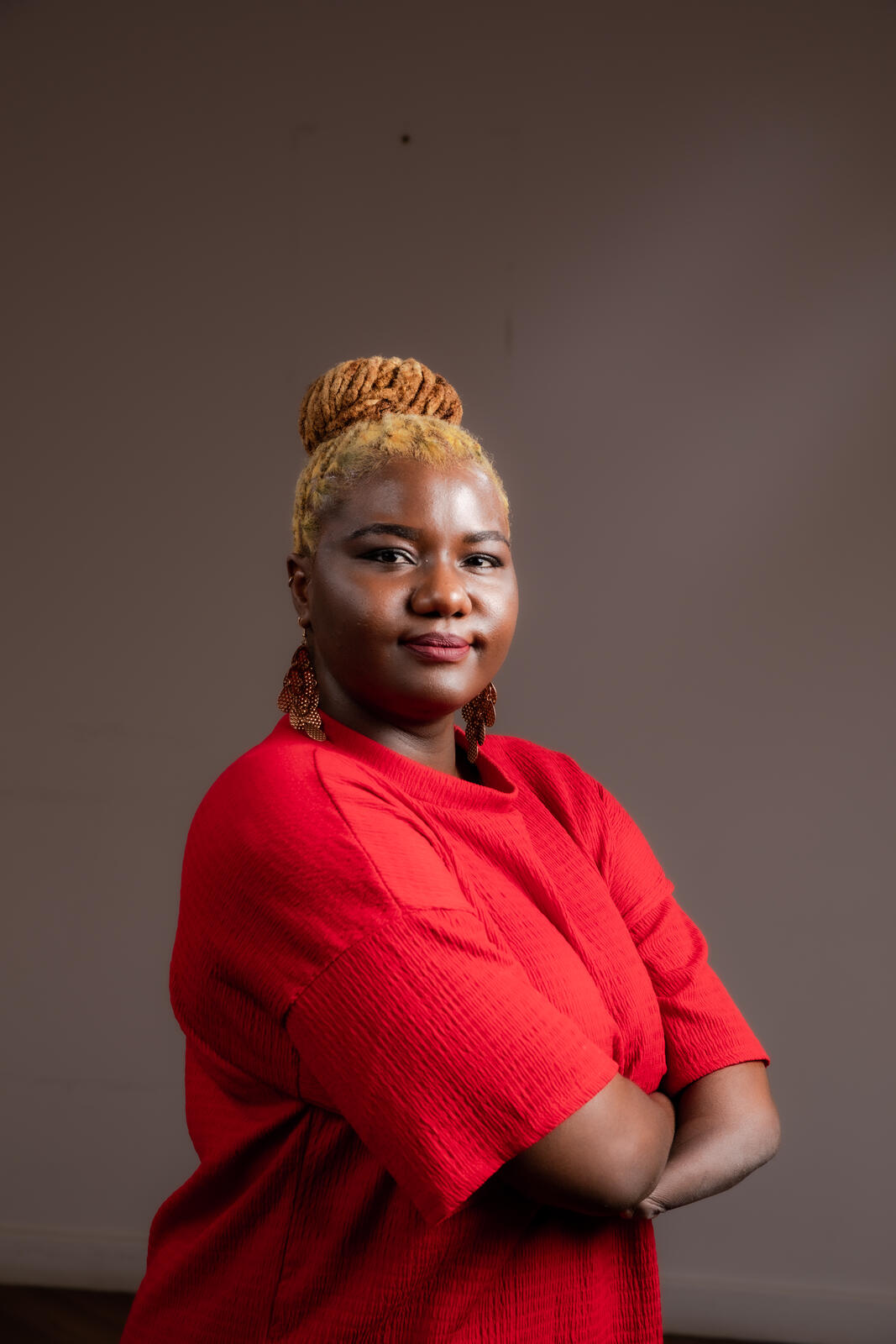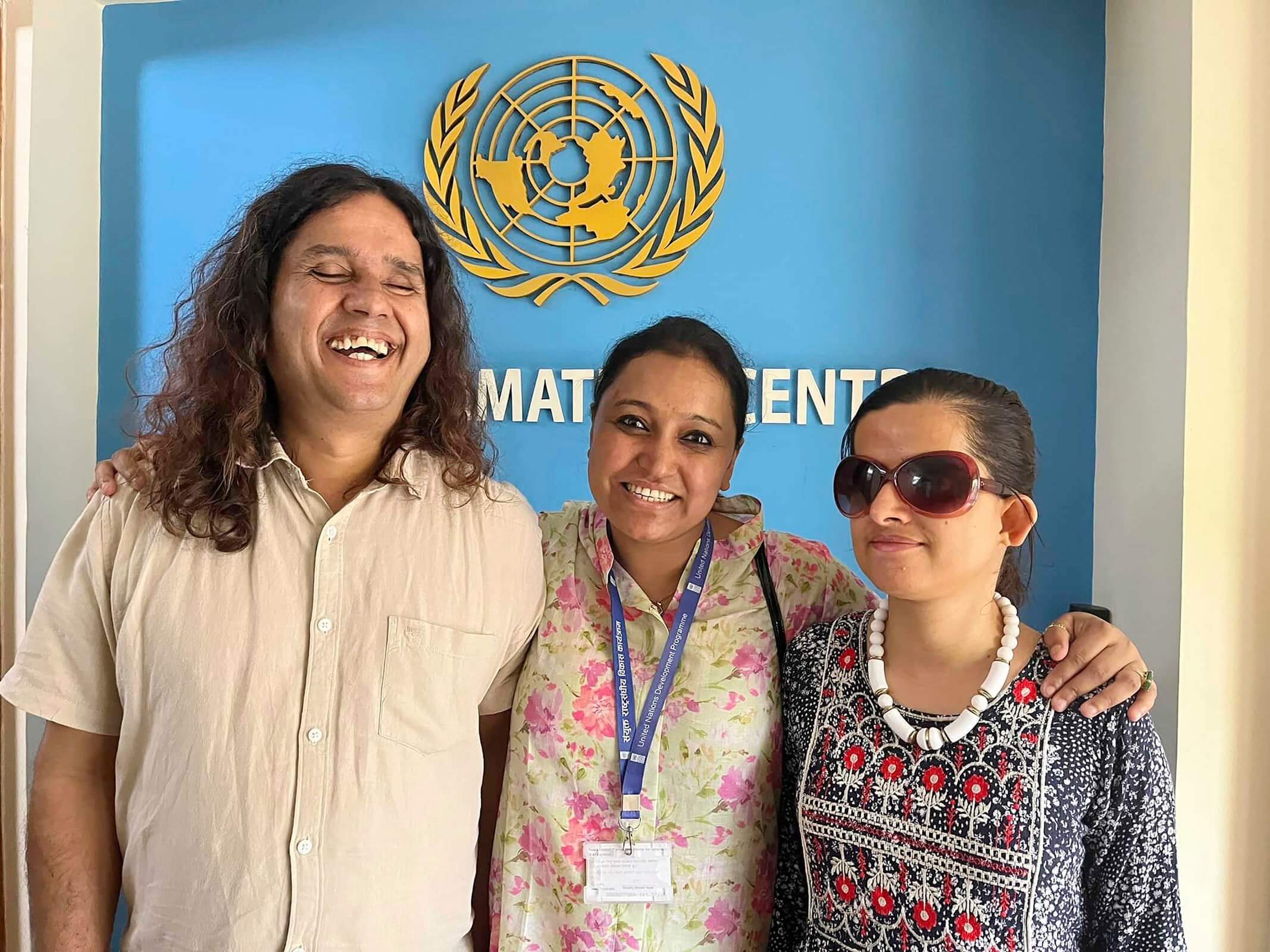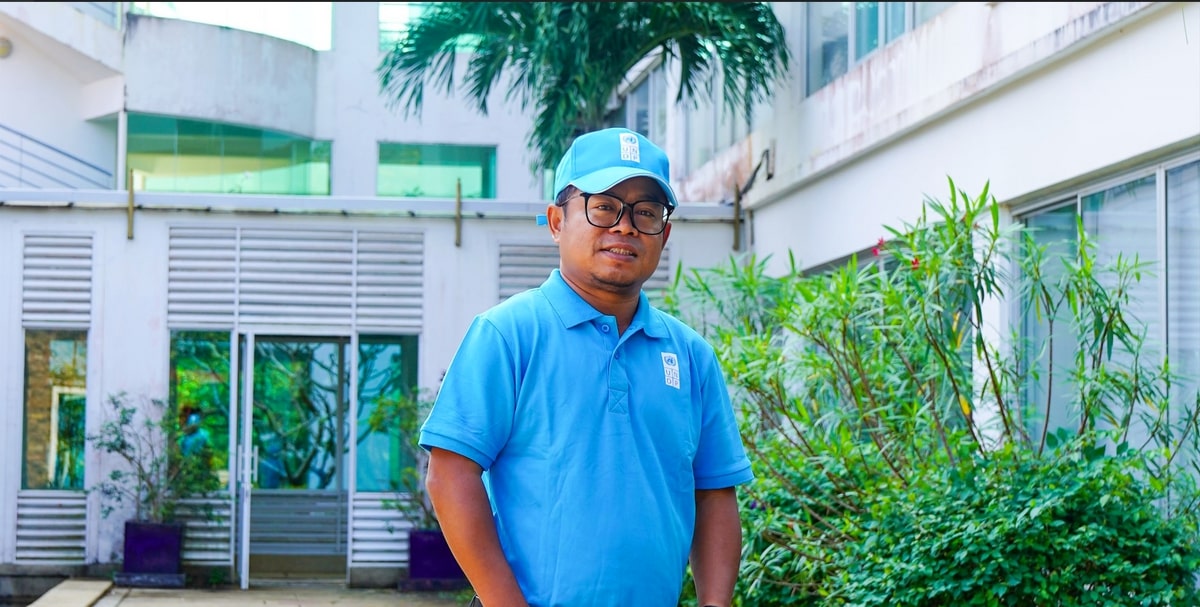

Mariana Ţîbulac-Ciobanu: Challenging the narrative on disability
Mariana Ţîbulac-Ciobanu joined United Nations Population Fund (UNFPA) in Moldova in 2021 as a UN Volunteer Communications Officer. She brought along her podcast, ‘Overcoming Prejudices.’ While at UNFPA, she broadened the podcast to include topics such as reproductive health and gender-based violence.
Her UN Volunteer assignment focused on writing articles and reports about people with disabilities, as well as addressing sexual and reproductive rights issues through her podcasts.
Mariana produced several podcasts on sexual and reproductive rights of persons with disabilities, and debunked existing myths. She also participated in the ‘Fighting Stigma with Style’ initiative, in which several girls and women with disabilities were involved in a campaign to promote inclusion in the fashion industry.
“Unfortunately, people in our country have quite a few prejudices and stereotypes towards people with disabilities. Through my podcast, I can dismantle these. The first prejudice is that people with disabilities should be isolated. Another is that they live only by the mercy of the state and are good for nothing. That’s not true. In our country, there are people with disabilities who are very active, and have potential and talent. They have shown us that they can achieve things and, sometimes, even overcome their condition.”
Mariana has locomotor problems due to cerebral infantile paralysis and has to fight relentlessly to be heard. Living with the reality of being a person with disability in Moldova, she is familiar with both the success stories and gaps within the system. Her resilience shines through as she battled a stereotype particularly close to her heart: that a woman with disability could not give birth or care for a child. Dismissing this prejudice, Mariana, a mother of a six-year-old, challenges this narrative and advocates for women with disabilities to have equal access to healthcare.
She draws inspiration from the success stories of other women with disabilities, who are in politics, or in research, who have proven themselves through academic achievement, or who have raised children. She believes strongly, that by speaking up and acting together, we can become a more inclusive society where no one is excluded.
This is why volunteering at UNFPA was a dream come true for Mariana. Here, she found a team of professionals with a similar vision of a society that is accessible to everyone and does not place limits on people’s potential.
Following her UN Volunteer assignment, Mariana is now a consultant with UN Women and UNHCR in Moldova.
This article was produced with the kind support of Online Volunteer Abbey Gibson. Find out more on how to volunteer online or engage Online Volunteers.



